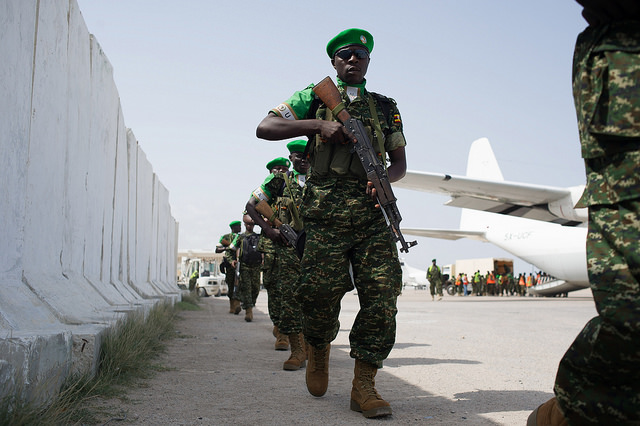Facebook Twitter (X) Instagram Somali Magazine - People's Magazine
As the African Union (AU) prepares to launch a new mission in Somalia called AUSSOM, concerns are being voiced about the effectiveness and intentions of foreign forces in the country. The forthcoming African Union Support and Stabilisation Mission in Somalia (AUSSOM), set to begin operations on January 1, 2025, has sparked debate among experts and observers who question whether it will succeed where previous missions have failed.
History of Foreign Missions in Somalia from AMISOM to AUSSOM
The history of foreign military interventions in Somalia dates back to 2007, when the African Union Mission in Somalia (AMISOM) was first deployed. AMISOM replaced IGADSOM, a peacekeeping force sent by the Intergovernmental Authority on Development (IGAD), a regional organization comprised of Horn of Africa and East African countries. Despite its original mandate to address issues such as drought and desertification, IGAD shifted its focus to security, leading to the deployment of Ethiopian forces in Somalia in 2006. These forces were met with resistance from Somali citizens and were eventually replaced by AMISOM in 2007.
AMISOM operated in Somalia for over a decade, facing significant challenges in its efforts to stabilize the country. In 2022, AMISOM was replaced by the African Union Transitional Mission in Somalia (ATMIS), which continued the work of its predecessor. However, like AMISOM, ATMIS struggled to achieve its objectives, leading to its scheduled withdrawal at the end of 2024.
Introduction of AUSSOM and Skepticism
The announcement of AUSSOM, which will succeed ATMIS, has been met with skepticism by some experts. Dr. Suleiman Walhad, a commentator on regional affairs, argues that the continuous presence of foreign forces in Somalia has not brought about the desired peace and stability. In an op-ed, Dr. Walhad expressed concerns that the new mission could simply perpetuate the cycle of failure seen in previous interventions.
Dr. Walhad highlights the long-standing issues associated with these foreign missions, noting that they often coincide with an increase in terrorist activities by groups such as Al-Shabaab. He questions whether there is a link between the presence of foreign forces and the persistence of insurgency in the country, suggesting that the AU’s missions may not be genuinely focused on Somalia’s long-term stability.
Call for National Reconciliation
In his op-ed, Dr. Walhad advocates for a different approach to Somalia’s security challenges. He calls for a national reconciliation process, emphasizing the importance of resolving internal clan conflicts through traditional Somali methods. According to Dr. Walhad, such a process would weaken the influence of terrorist groups by depriving them of local support and safe havens.
He also criticizes the involvement of foreign nations in Somalia, arguing that the Somali National Army (SNA) should be empowered to take full responsibility for the country’s security. Dr. Walhad suggests that resources allocated to foreign missions would be better spent on strengthening the SNA, which he believes is more capable of defending the country against both internal and external threats.
Debate Over Foreign Influence through AUSSOM
The debate over the role of foreign forces in Somalia is not new, but it has gained renewed attention as the end of ATMIS’s mandate approaches. Some observers share Dr. Walhad’s concerns, arguing that foreign interventions have often served the interests of external powers rather than those of the Somali people.
Others, however, believe that Somalia still requires international assistance to maintain stability, especially given the ongoing threat posed by terrorist groups. The involvement of countries such as Egypt, Turkey, the United States, and the United Kingdom in supporting the SNA is seen by some as crucial to building a strong and capable Somali military.
Future of Somalia’s Security (AUSSOM)
As Somalia prepares for the transition to AUSSOM, the future of the country’s security remains uncertain. The success of the new mission will depend on a range of factors, including the effectiveness of the SNA, the willingness of Somali leaders to pursue national reconciliation, and the continued support of the international community.
The coming months will be critical in determining whether AUSSOM can overcome the challenges that have plagued its predecessors or whether it will face the same criticisms and obstacles. For many Somalis, the hope is that their country can finally achieve lasting peace and stability, free from the cycle of foreign intervention and internal strife.

